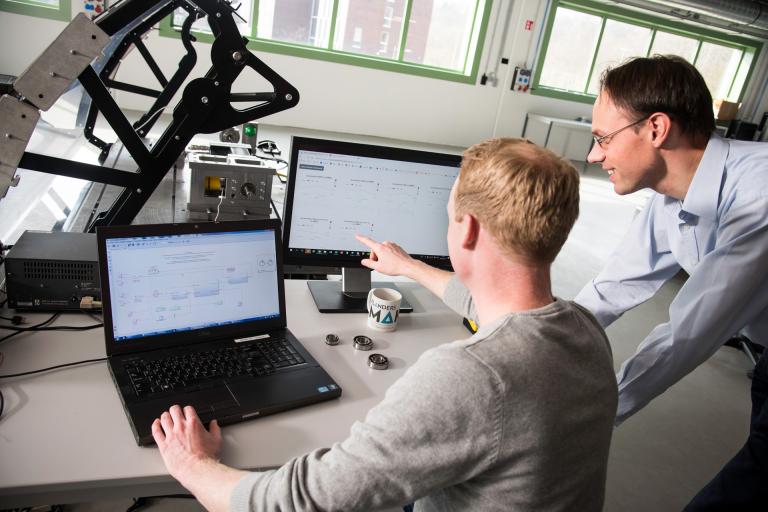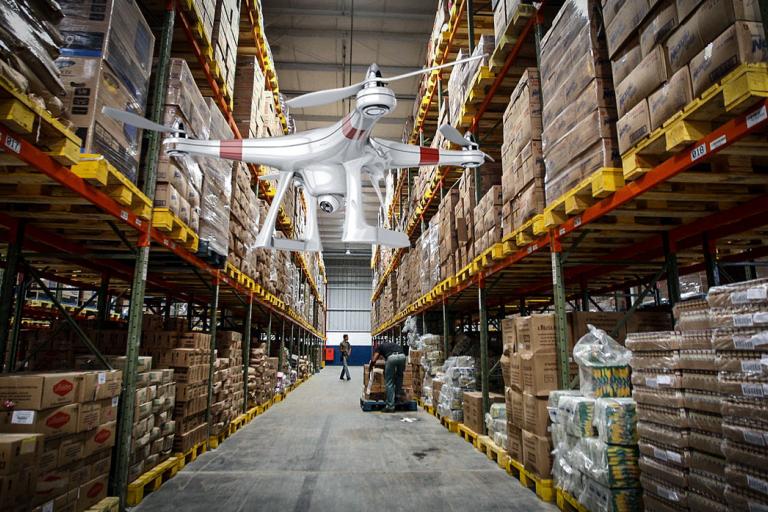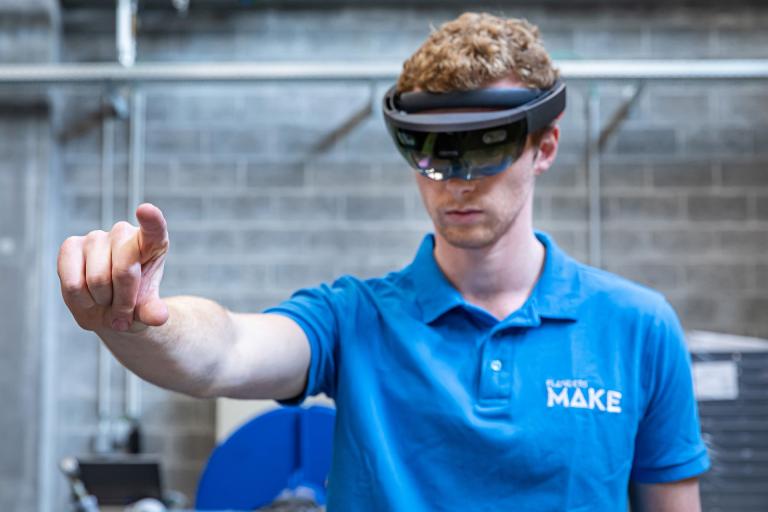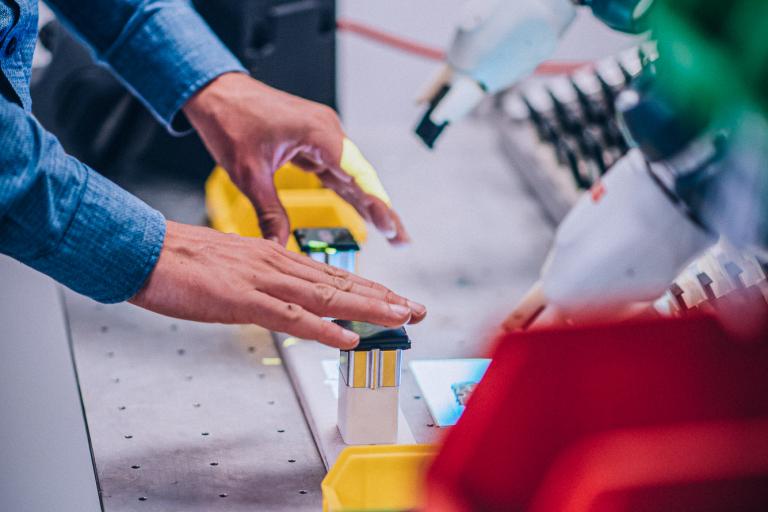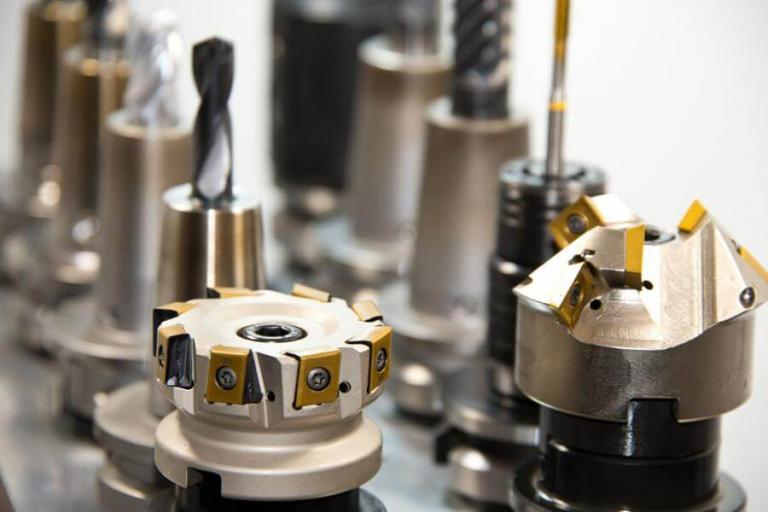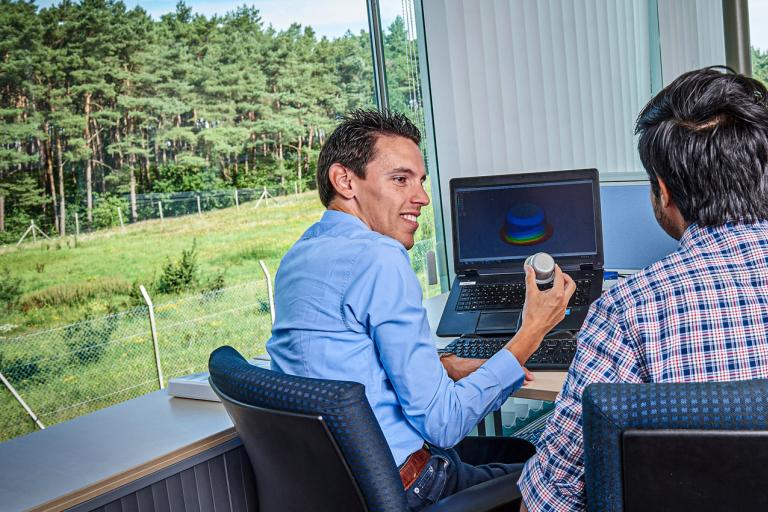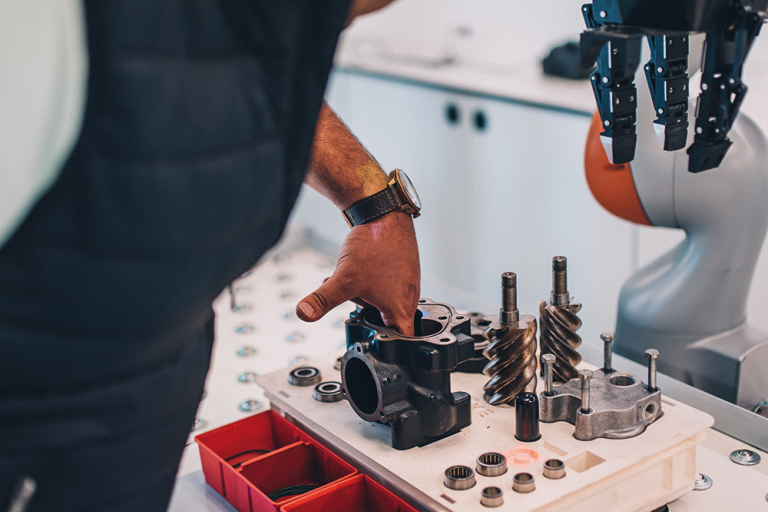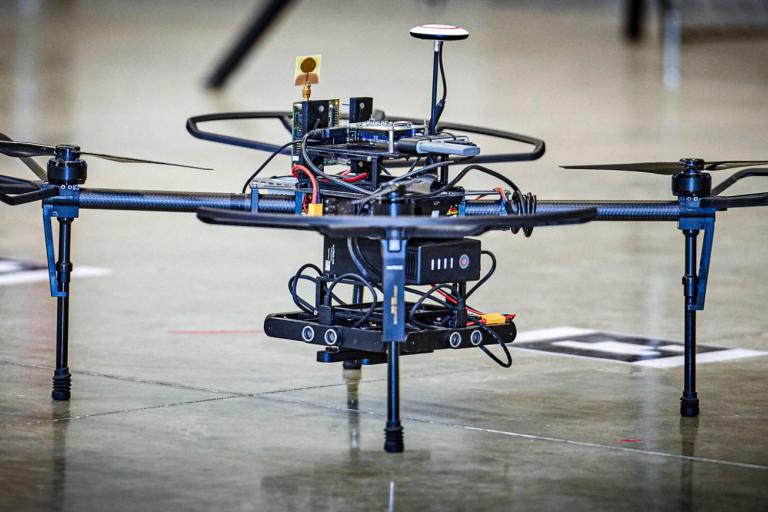Living labs for industry 4.0

What are living labs for Industry 4.0?
Technological evolutions, in particular further digitization, and strong changes in the international industrial landscape have an important impact on (production) companies. This new environment is often referred to as 'Industry 4.0', a rather broad concept in itself that, in its most general form, covers the full impact of digitization and connectivity on the industry.
The Flemish Government recognized the impact and included Industry 4.0 as one of the 7 central transitions in the Vision2050. A sustainable and competitive industry is an important condition for a prosperous Flanders.
In a living lab project, research institutions show a number of possibilities, focused on specific sectors and solutions. The Living Lab Industry 4.0 is a collective project aimed at the demonstration of advanced techniques in Industry 4.0. Through research institutes, a large group of companies is collectively sensitized and informed about new techniques resulting from the research. In doing so, the researchers will take into account the industrial conditions in various sectors.
Industry 4.0 focuses in particular on the digitization of industry, with effects on three major sub-themes:
- Smarter products: where software adds extra functions to a physical product, via faster design techniques, with more sustainable materials, etc.
- Smarter processes: in which one can produce faster, more efficient, more durable and more tailored, towards lot size one, 3D printing, digital twins, with predictive maintenance, ...
- Smarter business models: creating new customer-supplier relationships, third party payer systems, digital platforms, use of big data, ...
Open call for living lab projects
Frequently asked questions
Who can make use of this subsidy and for what?
An Industry 4.0 pilot project must be applied for by an 'organisation for research and knowledge dissemination' that complies with the European framework (see call document). Collective research centers, universities and colleges of higher education meet this requirement. Approved clusters (approved innovative business networks) can meet this requirement, as long as they have a separation between economic and non-economic activities. For more information or in case of doubt: contact VLAIO.
The support is granted for non-economic activities, in particular the personnel, operating and equipment costs (in depreciation) necessary to carry out an interesting pilot project.
Each project must be capable of activating at least 100 companies.
The solutions in this group must be accessible and inspiring for an even broader group of potentially interested companies. So it is not about technology development, but about the application. New technology can, of course, also be introduced and forerunners can participate, as long as they contribute to the central goal. In addition to the demonstration, the focus on the concrete business case of each company served is crucial.
How much funding can you get?
Recognized organizations for research and knowledge dissemination can obtain a maximum support of € 500,000 per project, alone or in collaboration. This is 80% of the acceptable costs.
Companies do not receive a direct subsidy in this scheme. However, they can be helped by the research organizations that are obliged to inform, sensitize and coach a large group of companies.
